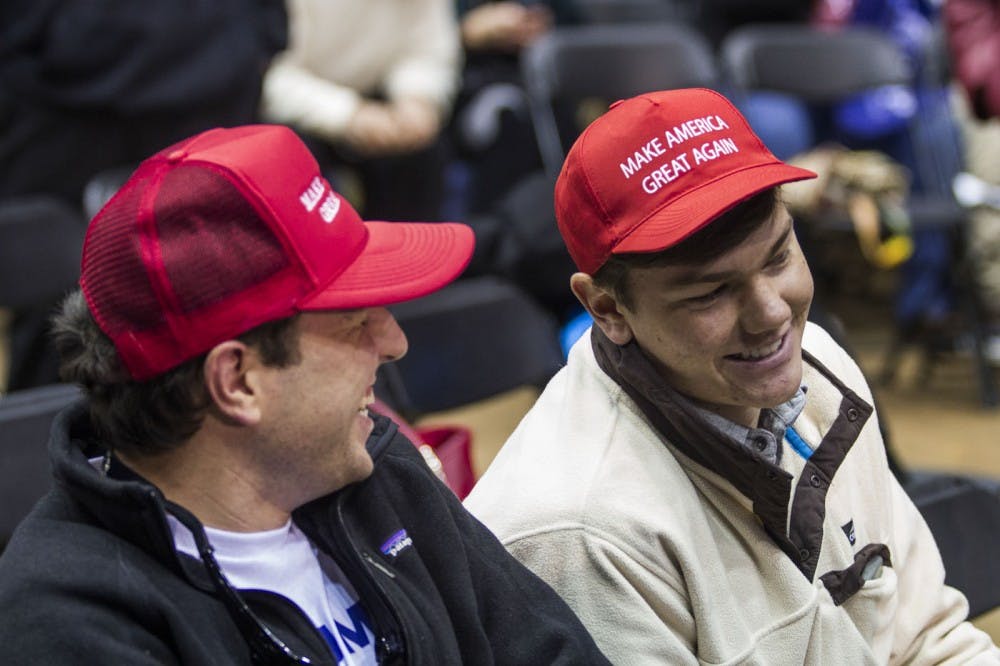A house divided cannot stand. In American politics today, there is an ever-increasing rift between conservative and liberal America that seems to grow more each year, with partisans on both sides more or less cloistering themselves in their own little bubbles free from all dissent. According to a new Pew Research study, the political and social divisions between the parties continues to grow at a rapid rate, with ideological conformity and close-mindedness becoming the new norms for members of both parties.
For those concerned with the stability of American society, this trend should be seen as frightening. Though much could be written about the potential consequences of extreme polarization on the running of the government, the potential implications among voters are both more interesting and arguably far more disturbing. This extreme division is at least partially responsible for the rise of Trump.
If you listen to what Trump supporters have to say, you will find a recurring theme regarding coastal elites who, being overwhelmingly liberal and “progressive," simply can’t relate to Red State Americans. There is a real animosity and sense of isolation among Trump supporters, who feel they receive nothing but contempt from the upper levels of society. Trump himself has eagerly played up this feeling of resentment among his base, gleefully tweeting inanities about the evil media while the country itself faces major challenges. For all of Trump’s failings as a leader, it cannot be denied that he is a skilled politician who knows exactly how to play into the fear and resentment of his supporters.
While culture war politics are nothing new, in the 21st century the animosity involved seems amplified. Eminem’s recent performance for BET, enthusiastically praised by everyone from Keith Olbermann to Snoop Dogg, epitomizes the current political climate. Though Eminem had some perfectly valid criticisms of Trump, he also made a point to single out Trump voters, telling them to choose between being his fan and supporting the president in explicit terms.
This sentiment was repeated by Seth Meyers and has arguably been evident since the very beginning of the election. While Trump voters, for their part, have not been hesitant to lash out at their opponents, major figures denouncing and excluding them helps no one. Hillary Clinton’s infamous “deplorables” comment, while taken out of context, served only to energize Trump’s base and reassure them that their contempt for the political mainstream is justified.
I myself do not support Trump, nor do I believe that all of his supporters fit the downtrodden underdog archetype they sometimes like to present themselves as. However, if we are to avoid future Trump-esque candidates, we will need to try to come together rather than attacking our fellow Americans over their vote. The right was, of course, guilty of highly divisive rhetoric during the Obama years, which no doubt contributed to our current dilemma. Trump should be criticized whenever he deserves to be, but to attack Trump voters themselves only feeds into their politics of resentment and spoils any chance of compromise or coming together.

